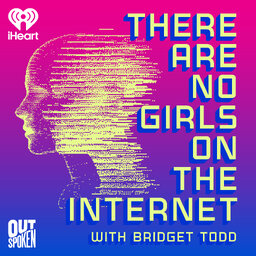Scammers are using TikTok to cash in on the invasion of Ukraine
From fake videos to fake live streams, TikTok is awash in disinformation about the invasion of Ukraine. Social media expert Marieke Kuypers has been fighting back.
Read TikTok Was Designed for War: https://www.wired.com/story/ukraine-russia-war-tiktok/
Follow Marieke on TikTok: https://www.tiktok.com/@mariekekuypers
Follow Marieke on Twitter (English): https://twitter.com/englishmarieke
Follow Marieke on Twitter (Dutch): https://twitter.com/kuypersmarieke
Visit Black Women for Black Lives for ways to support Ukraine: https://linktr.ee/BW4BL_official
Want to support the show? (thank you!)
Subscribe, tell a friend, leave a review (Bridget personally reads them all!) or buy some merch at There Are No Girls on the Internet’s store: TANGOTI.COM/STORE
Join our newsletter: Tangoti.com/newsletter
Say hello at hello@tangoti.com
In 1 playlist(s)
There Are No Girls on the Internet
Marginalized voices have always been at the forefront of the internet, yet our stories often go over…Social links
Follow podcast
Recent clips

Amazon Ring Super Bowl Ad BACKFIRES; YouTubers Exploit Women's Arrest Videos; Salesforce CEO ICE "Joke" – NEWS ROUNDUP!
1:10:54

University of Oklahoma Trans Instructor's Attorney Still in the Fight After Appeal Denied
47:18

Should You Trust Andrew Huberman? What CBS's Epstein Disaster Reveals About Wellness Gurus
1:32:51
 There Are No Girls on the Internet
There Are No Girls on the Internet